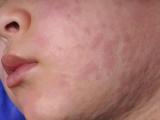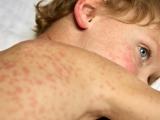May 25, 2011
CDC assesses potential exposure to prion diseases
Researchers at the US Centers for Disease Control and Prevention (CDC) recently assessed the prevalence of certain behaviors that could expose Americans to prion diseases, including bovine spongiform encephalopathy (BSE or mad cow disease); BSE's human counterpart, variant Creutzfeldt-Jakob disease; and chronic wasting disease (CWD), which afflicts deer and elk. The investigators used data from the CDC's 2006-07 FoodNet population survey, covering all or parts of 10 states, according to their report in the Journal of the American Dietetic Association. The survey showed that 29.5% of participants had traveled to one of the nine BSE-endemic European countries since 1980; 18.5% had hunted for deer or elk; 1.2% had hunted in CWD-endemic areas; 67.4% had eaten venison, and 88.6% of those who ate venison had obtained it from the wild. "More than anything else, the results of this study support the need for continued surveillance of prion diseases," lead author Joseph Y. Abrams commented in a news release from the American Dietetic Association (ADA). The authors said the findings reinforce the importance of programs to detect and control CWD in deer and elk.
May 23 ADA press release
Signs point to O104 subtype in German E coli outbreak
In their investigation of a sudden and unusual spike in enterohemorrhagic Escherichia coli (EHEC) infections, German investigators have found the very rare O104 subtype in the stool samples of five patients so far, Science Insider, the online news service of Science magazine, reported today. The outbreak is unusual, because hemolytic uremic syndrome (HUS), a potentially fatal kidney complication, has been reported in many of the patients. Also, the disease, which typically affects children inordinately, is hitting women hardest. Klaus Stark, an official at the Robert Koch Institute (RKI), the country's federal disease control agency, told Science Insider that he hoped a pathogen can be identified in more patient samples today, though signs point to E coli O104 as the culprit. He said the RKI has received reports of 140 HUS cases since the middle of May, making it the largest EHEC outbreak that Germany, and possibly the world, has seen. So far the source of outbreak hasn't been identified, but authorities suspect raw vegetable contamination. The RKI has launched a case-control study, and scientists at Germany's E coli reference lab are working on a rapid test to detect the rare serotype, Science Insider reported. So far more than 400 suspected cases have been linked to the outbreak, and authorities are investigating if the disease played a role in three deaths, Der Spiegel, a German weekly news magazine, reported yesterday. Werner Solbach, a microbiologist at a Kiel hospital, told the magazine that lab tests show the E coli strain responsible for the outbreak is partially resistant to antibiotics.
May 25 Science Insider story
May 24 Der Spiegel story
Iowa measles case prompts exposure warning
A confirmed measles case in baby who recently traveled to India has sparked warnings about possible exposure to the disease on airline flights and at a clinic and hospital in Des Moines, the Des Moines Register reported yesterday. The Iowa Department of Public Health (IDPH) in a statement said that individuals who were on an American Airlines flight from Chicago to Des Moines and in the Des Moines International Airport's main terminal and baggage area on May 11 may have been exposed to the virus. It said the child also visited Mercy Central Pediatric Clinic and Mercy Medical Center on May 14. The IDPH advised people who may have been exposed to the baby and have not had two doses of measles, mumps, and rubella (MMR) vaccine to contact their county health department or a healthcare provider to be vaccinated.


















